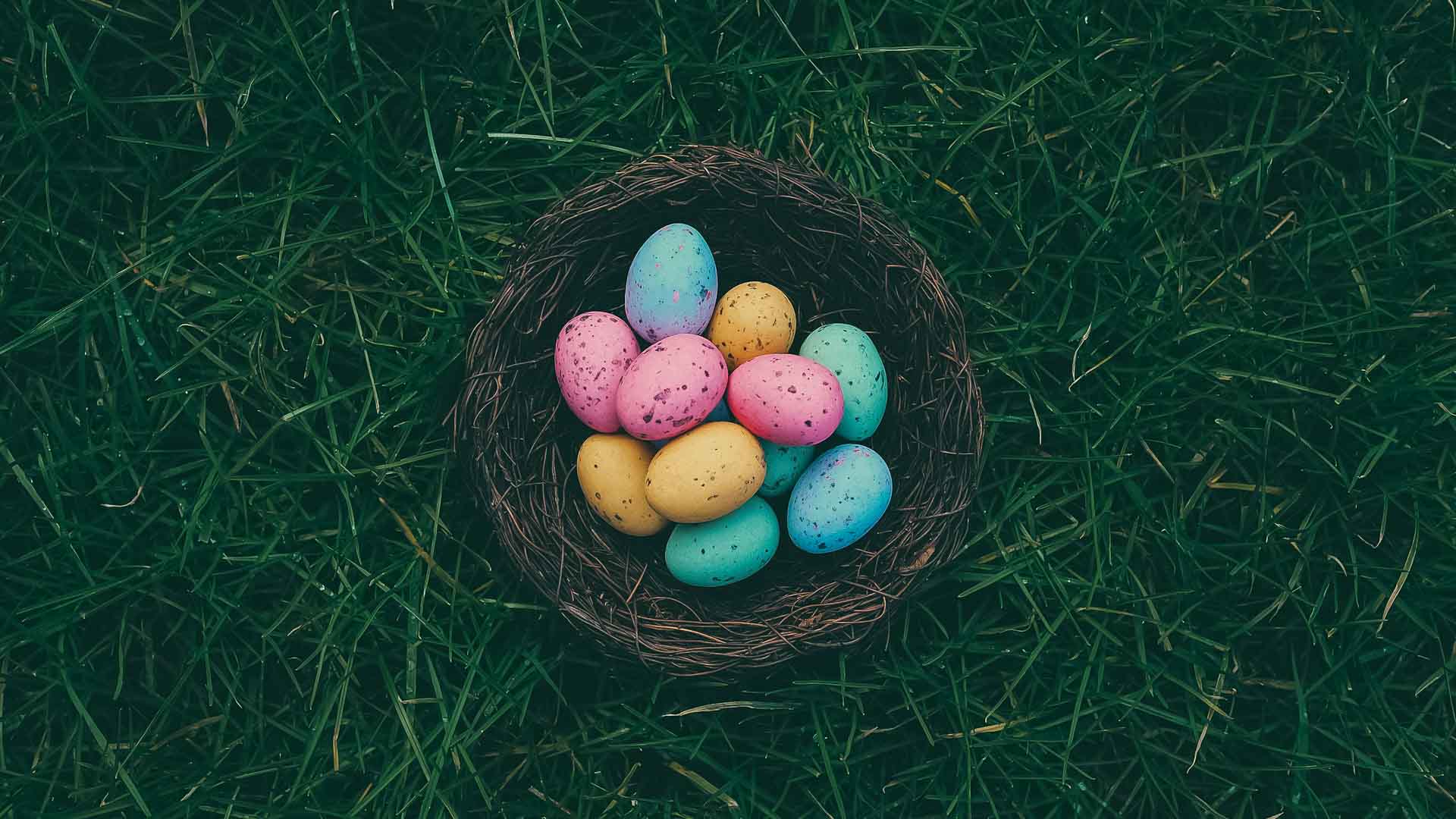
for daily encouragements and latest Christian resources.
The chocolate eggs popping up at supermarkets and minimarts.
The Easter bunny bearing brightly-coloured eggs in a basket.
The water splashing around at Good Friday or Easter baptisms.

These are just some of the Easter customs and traditions that appear around this time of the year, and which might prompt some children to ask: What do these all mean?
Here are five questions we might hear from children about Easter—and how we can respond.
Give Us This Day 20
Get our latest family devotional!
Our latest devotional, Give Us This Day 20 is now available.Get a copy
Every month, we roll out a new resource for families. Subscribe to our email updates, and be the first to get a copy!
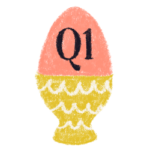
Where does the word “Easter” come from?
We can explain why Good Friday is “good”, but why do we call “Easter”, well, “Easter”?
While the celebration of Easter is linked to Passover—the Jewish feast instituted in the book of Exodus—the word “Easter” itself derives from the Old English name for the month in which Easter normally falls, Ēosturmōnaþ or Ēastermōnaþ (try pronouncing that out loud). Today, that month corresponds to March or April (see Question #4).
Incidentally, some scholars also connect these Old English names with the geographical east, since the spring equinox in the northern hemisphere usually occurs at this time of the year. This is the day when the sun rises exactly in the east, without deviating to the north or south.
The word “Easter” itself derives from the Old English name for the month in which Easter normally falls. Today, that month corresponds to March or April.
Other scholars, however, say that the name of the month in which Easter normally falls in actually has its roots in Ēostre, a spring goddess worshipped by the Anglo-Saxon tribes of the British Isles prior to their conversion to Christianity. Ēostre’s festival was also celebrated around this time of the year.
So, should we ditch the word “Easter” because of its possible connections with pagan worship?
To answer this, we can look at what the apostle Paul said about whether believers should eat meat sacrificed to idols.
Paul’s response was nuanced. First, he noted that since these idols did not actually exist (1 Corinthians 8:4–6), the pagan worship would have had no actual effect on the food (v. 8). However, he also recognised that some Christians felt that eating such food would be like taking part in pagan worship (v. 7). Therefore, he urged followers to be considerate to this group by refraining from eating meat sacrificed to idols, so as not to cause them to stumble in their faith.
While most Christians and churches can continue to call the festival “Easter”, on an individual level, we can be considerate towards those believers by saying “Resurrection Sunday” instead.
Likewise, there’s nothing inherently wrong with using the word “Easter” to refer to the celebration of Christ’s resurrection. For some believers, though, the possible pagan origins of the word may be of great concern. They may feel that this word taints the celebration of Christ’s resurrection because it is associated with the worship of an idol. So, while most Christians and churches can continue to call the festival “Easter”, on an individual level, we can be considerate towards those believers by saying “Resurrection Sunday” instead.
What we can tell our kids: Nobody knows for sure where the word “Easter” came from, though it is tied to old English culture. Because of this, some Christians may not like using this word. It’s not wrong to say “Easter”, but we can be sensitive to their feelings by calling it “Resurrection Sunday”.
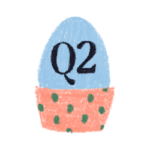
Why do we give out eggs at Easter?
Some churches have a tradition of giving out hard-boiled eggs that have been dyed a bright red during the Easter Sunday service. Some cultures in the West take the egg-citement to even greater heights by decorating Easter eggs in multicoloured livery, and rolling them down grassy hills.
Eggs have been linked with Easter because they are a source of new life and represent new beginnings—just like how Jesus’ resurrection means a new beginning for all who believe in Him.
The red dye represents Jesus’ blood shed on the cross, which “purifies us from all sin” (1 John 1:7). The red hard-boiled eggs thus remind us of Jesus’ blood and the significance of His suffering and death.
What we can tell our kids: Eggs represent new life because they’re where baby animals like chicks and ducklings come from. They remind us of the new life we get from Jesus, who died and rose from the grave.
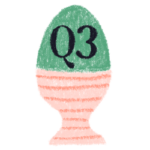
Where did the Easter Bunny come from?
Rabbits are known for their fertility: with a gestation period lasting just one month, a pregnant rabbit can yield a litter of up to a dozen little rabbits.
No wonder, then, that the cuddly critters—along with eggs—have come to be associated with new life and thus Easter.
Moreover, in Europe, Easter falls in springtime, which is when the early European Christians would see rabbits dot their fields after the cold of winter. This may be where the link between Easter and the rabbit was first made. This may not make sense in tropical places like Singapore, but the tradition has been imported here, perhaps by early colonial expatriates and globalised media.
What we can tell our kids: Like eggs, rabbits are a symbol of new life, because they can have lots of babies at once. In Europe, Easter takes place in spring—which is also the time when rabbits appear in great numbers after winter. So, Christians in Europe made the connection between rabbits and the new life we have through Jesus’ resurrection!
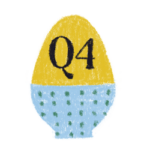
Why do we celebrate Easter on different dates each year?
Christmas always falls on 25 December—so why does Easter fall on different dates, either in March or April, in different years?
First, the date of Easter has to be changed yearly because Easter has to fall on a Sunday—the day Christ rose from the dead. This would not be possible with a fixed date.
But why a Sunday in March or April, rather than other months of the year? That’s because in the year 325, early church leaders agreed to fix Easter on the first Sunday after the first full moon after 21 March, based on the lunar calendar. The fluctuations in the date of Easter became more drastic when the Western church switched to using the solar or Gregorian calendar.
But what’s so special about the full moon and 21 March?, you might ask. The early church tied Easter—which celebrates Jesus’ resurrection—to these occasions because the full moon and 21 March are connected to the date of the Jewish Passover feast, which Jesus celebrated the night before He died.
When Jesus celebrated that special Passover, He transformed the Passover meal into a lasting memorial of His death and resurrection—events which we now commemorate on Good Friday and Easter Sunday respectively.
What we can tell our kids: We celebrate Easter on different dates every year, because it has to be on a Sunday, the day Jesus rose from the dead. The early church also decided to fix its date around March and April, because that was the time Jesus had his last Passover meal the night before He died.
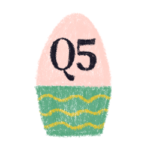
Why do people get baptised on Easter?
Many churches like to conduct baptisms around the time of Easter, which may prompt our kids to ask why that’s the case.
The Bible doesn’t tell us when new Christians should be baptised. It even records impromptu baptisms, such as that of the Ethiopian eunuch (Acts 8:38), and the household of Cornelius (10:47–48).
Scripture does, however, reveal a profound connection between the meaning of baptism, and the events of Good Friday and Easter. In Romans 6:3–5, Paul wrote:
Don’t you know that all of us who were baptised into Christ Jesus were baptised into his death? We were therefore buried with him through baptism into death in order that, just as Christ was raised from the dead through the glory of the Father, we too may live a new life. For if we have been united with him in a death like his, we will certainly also be united with him in a resurrection like his.
It’s no surprise, then, that some churches see Easter as the perfect time for initiating new members into the spiritual reality of Christ’s death and resurrection in believers’ lives.
The practice of administering baptism at Easter also became linked to the season of Lent, which begins 40 days before Easter, not counting Sundays. The initial idea behind Lent was for believers to go through a period of preparation and self-examination, before celebrating the joy of Easter.
This period of sober preparation would later become regarded as an ideal time for new believers to prepare for their baptism. It was also used as a time for Christians who had committed serious public sins to be reconciled to the church.
What we can tell our kids: Some churches baptise new believers at Easter because baptism is a sign of our new life in Jesus Christ. When we believe in Him, we will rise from the dead like He did—and that’s what Easter is all about, too!

The Joy behind Easter Customs
While our kids may be more fascinated with the Easter bunny and eggs, we can glean plenty of lessons and truths from these customs and traditions—even if they aren’t explicitly based on the Bible.
We may not personally observe or even appreciate some of them. But knowing their roots—and teaching them to our own children—can help us better understand and rejoice in the meaning of Easter: the proclamation of the gospel message that Jesus is Lord, and that God has raised Him from the dead.
May we and our children celebrate this Easter with joy and thankfulness, giving praise to our risen Lord and Saviour!





